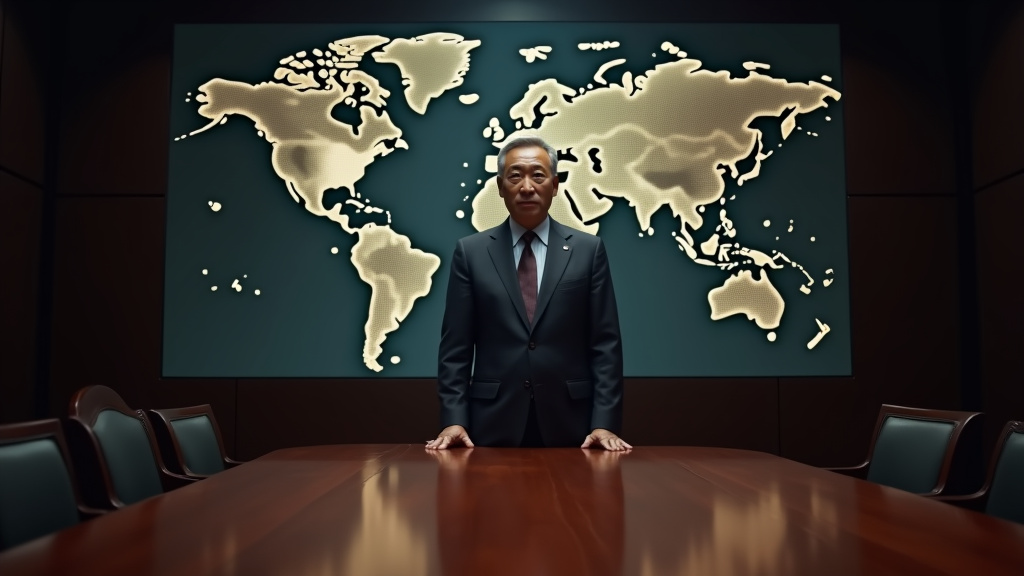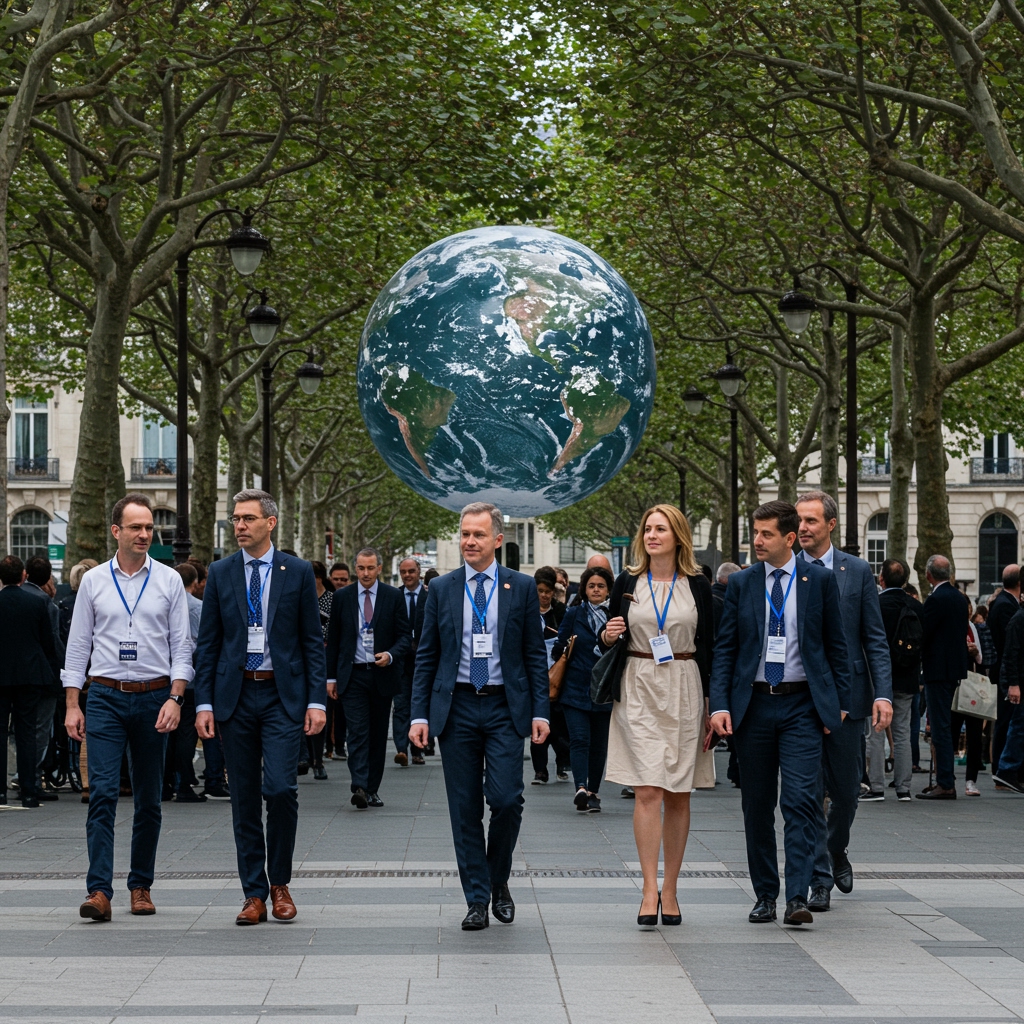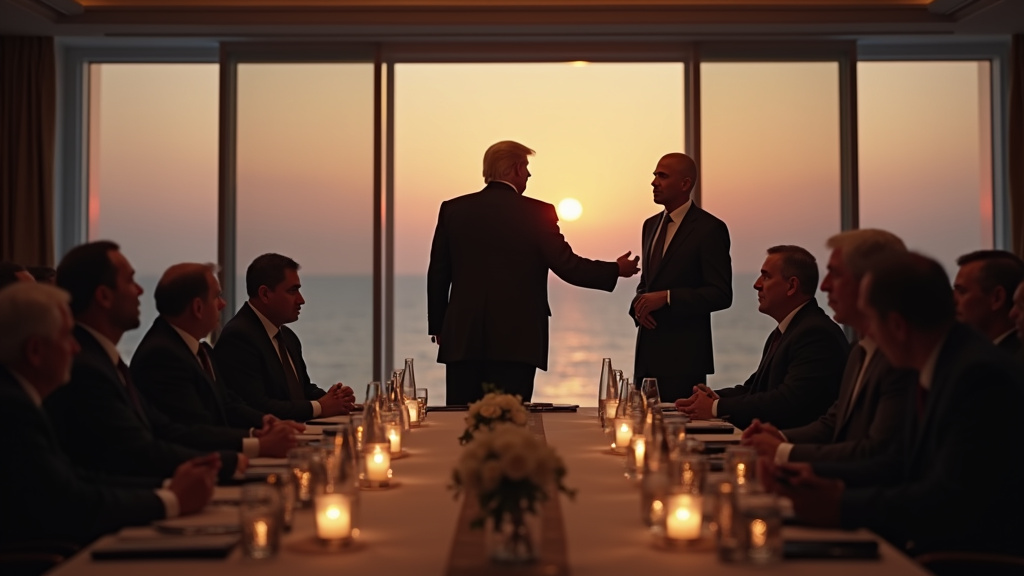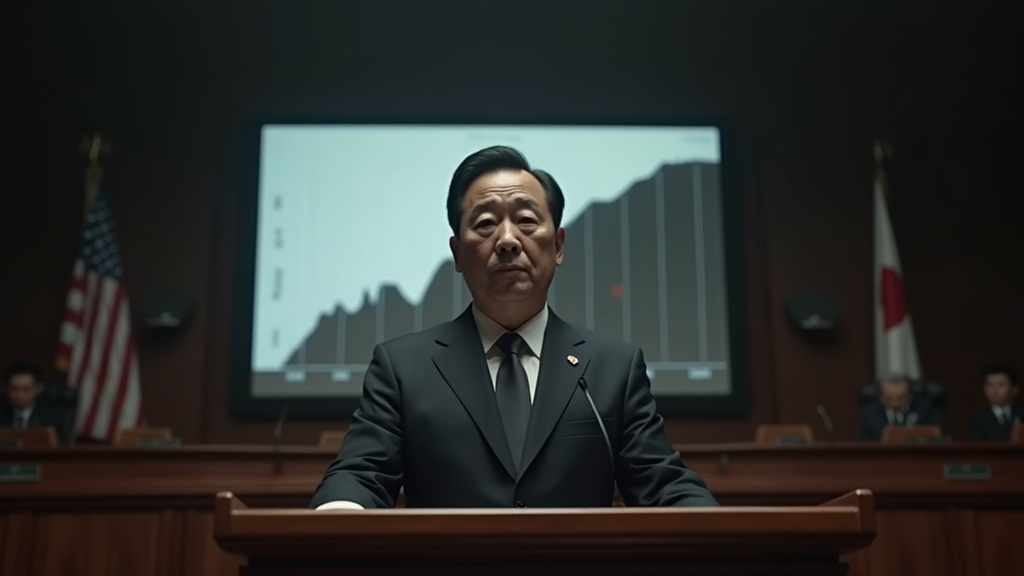Beijing Formalizes Leadership Shift in Trade Diplomacy as Global Economic Friction Intensifies
Beijing, China – October 20, 2025 – In a move that signals a strategic recalibration of its international trade posture, China has formally removed veteran trade negotiator Li Chenggang from his post as permanent representative to the World Trade Organization (WTO). The announcement, confirmed by state media Xinhua on Monday, formalizes Li’s reassignment to the paramount role of Beijing’s top international trade negotiator, a position he was initially appointed to in April.
This significant leadership change occurs against a backdrop of rapidly escalating trade tensions between the world’s two largest economies. The United States has recently intensified its sanctions on Chinese firms, prompting a robust response from Beijing that includes tightening export curbs on rare earths and other critical materials. This diplomatic and economic maneuvering underscores the delicate state of global commerce and the heightened stakes for upcoming negotiations.
Formalizing a New Era in Trade Talks
The official confirmation of Li Chenggang’s departure from the WTO envoy position and his solidified role as the nation’s chief international trade negotiator was part of a routine list of ambassadorial changes approved by President Xi Jinping. While Beijing has characterized the shift as a “routine personnel change,” its timing is particularly noteworthy. Li Yongjie has since presented her credentials as China’s new representative to the WTO, taking up the Geneva-based post on September 29.
Li Chenggang, 58, brings extensive experience to his enhanced role. Having previously served as China’s ambassador to the WTO for over four years, he has held numerous key positions within the Ministry of Commerce. His academic background includes degrees from Peking University and Germany’s Hamburg University, providing him with a deep understanding of international trade laws. He played an instrumental part in four successive rounds of US-China trade talks, aiming to de-escalate tariff disputes that have seen both nations impose duties exceeding 100% on each other’s goods.
Intensifying US-China Trade War
The reshuffling of China’s trade leadership coincides with a particularly volatile period in US-China relations. Washington’s expansion of sanctions on Chinese entities is met by Beijing’s strategic tightening of export controls, particularly on rare earths – minerals essential for advanced technologies ranging from smartphones to defense systems. This economic brinkmanship has also manifested in tit-for-tat port fees imposed on each other’s ships, further complicating trade flows.
Analysts view these developments as critical elements influencing the broader trade war narrative. The ongoing disputes are occurring in anticipation of a potential meeting between US President Donald Trump and Chinese President Xi Jinping on the sidelines of the APEC summit in South Korea later this month. Treasury Secretary Scott Bessent’s recent remarks have highlighted the charged atmosphere, with discussions planned in Malaysia next week aimed at preventing further tariff escalation.
A Controversial Figure on the World Stage
Li Chenggang’s elevated profile has also brought him into sharp public focus, notably due to outspoken remarks made during an August visit to Washington. US Treasury Secretary Scott Bessent publicly criticized Li, describing him as “unhinged” and “disrespectful.” Bessent alleged that Li had made threatening statements, warning of global chaos if the US proceeded with planned port fees for Chinese ships. The US Treasury chief even alluded to Li’s style of communication, comparing it to “wolf warrior” diplomacy, a term used for an assertive and confrontational diplomatic approach. Beijing’s foreign ministry, however, maintains that such comments do not influence personnel changes.
Li’s August visit, reportedly uninvited, involved demands for high-level meetings and a restatement of China’s positions, which sources indicated ruffled feathers within the US administration. This personal friction adds another layer to the complex geopolitical landscape, underscoring the deep-seated disagreements and potential for miscalculation in the current trade climate.
Strategic Implications for Global Commerce
This leadership transition and the heightened tensions suggest China is strategically positioning its negotiators for continued friction. Li Chenggang’s appointment as top international trade negotiator, formalizing his move from the WTO, indicates Beijing’s focus on leveraging legal expertise and institutional knowledge in its trade disputes. His background in WTO law and his role in past negotiations, including the 2020 trade deal, position him to challenge US measures within global frameworks.
The broader implications for major global events and the international economic order are substantial. China’s emphasis on self-sufficiency in critical sectors, such as semiconductors and rare earths, and its efforts to control supply chains, signal a long-term strategy aimed at reducing dependence on Western economies. This aligns with broader goals of economic resilience and supply chain control, reflecting a recalibration in China’s economic statecraft.
The coming weeks will be pivotal, with high-level meetings scheduled to address the ongoing tariff war and resource disputes. The outcome of these negotiations, coupled with the strategic appointments in China’s trade leadership, will significantly shape the trajectory of international commerce and geopolitical relations for the foreseeable future. This major political event news highlights the ongoing struggle for economic dominance and stability in a rapidly shifting global landscape.





